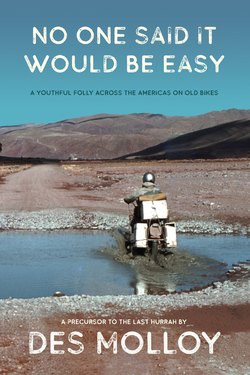Читать книгу No One Said It Would Be Easy - Des Molloy - Страница 22
На сайте Литреса книга снята с продажи.
Оглавление15
no one said it would be easy
vehicle will vary from country to country. Unchecked, sharp entrepreneurs would soon work out where a given model was cheap and take it to one where it was expensive and sell. To control this, most of the world’s nations require you to have a document that ensures you keep on going. This is a Carnet de Passages en Douane, a document that is signed when you enter a country and signed when you leave. The muscle behind making you comply with this is quite simple … you are required to lodge a significant bond which you don’t get back until you return to where you set off from. Some countries require this bond to be as high as twice the new value of the vehicle, so when planning a trip, you need to find out the highest bond required and get an appropriate Carnet. With none of our bikes still being in production, our bacon was saved … there was no ‘new value’. This meant we were able to value the bikes ourselves and as you can imagine we valued ‘the worthless old shitters’ pretty low and as an added bonus found an insurance company to lodge the money, with us just paying a premium. Travellers we met on the road had either lodged huge cash bonds or in one case the parents had a significant mortgage taken over their house.
The next hurdle … visas. Of course being ‘Working-Joes’ meant that getting our paperwork in place was a laborious chore necessitating taking time off and intermittently dashing into the madness of Central London. Getting the US Visa proved to be a real hurdle. If travelling from NZ, it is quite normal for you to pass through the US and as you might be going to do the same on the way home, the Embassy in Wellington typically issues you a multiple-entry visa for five years. The US Embassy in Grosvenor Square has no such largesse. The first visit was a complete fizzer as the queue stretched for several blocks and we didn’t reach the front in the allotted time. It was an interesting process and once inside the actual building you could observe the ‘culling process’. A row of front people reviewed your application and it seemed rejected it as a default position. It looked like only about one in ten were being ushered off to other small interview rooms. Our second visit at least got us to the rejection stage. For the third visit, we prepared quite thoroughly … we thought. We pooled as much money as we could find from friends and got bank statements showing fat balances. We also worked our way through several of the Central American countries’ embassies, getting visas.
So back into battle. We arrived, not quite in the middle of the night, but certainly at an hour when we should have still been somnolently dreaming of the wonderful
